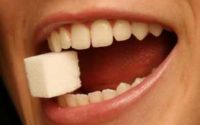29 Mar Sugar-Sweetened Beverages During Adolescence Linked To Dental Cavities
MedicalResearch.com Interview with:
 Teresa A. Marshall, PhD
Teresa A. Marshall, PhD
Professor in the Department of Preventive and Community Dentistry
University of Iowa College of Dentistry
Iowa City
MedicalResearch.com: What is the background for this study?
Response: Dental caries is a process during which oral bacteria ferment carbohydrates to produce acid. The acid demineralizes enamel and/or dentin at the tooth surface leading to white spots and eventually cavitation in the tooth. Added sugars – those not naturally present in foods or beverages, but rather added during processing – are the primary type of carbohydrate associated with caries. Sugar-sweetened beverages (SSBs; beverages with added sugars) are the food/beverage category most associated with dental caries.
Historically, fluoride has protected against caries through remineralization of the enamel. However, there has been some question as to whether fluoride’s ability to protect against caries is overwhelmed by the quantity of added sugars currently consumed.
Oral hygiene behaviors – brushing and flossing – are thought protect against caries by disrupting the oral bacteria on the tooth.
Most studies have investigated dietary factors and caries during early childhood, with less attention paid to caries during adolescence.
Our objective was to identify associations between longitudinal beverage intakes and adolescent caries experience, while also considering fluoride intake and tooth brushing behaviors.
We followed a group of children from birth through age 17 years; during this time period, we looked at their beverage intakes, fluoride intakes and brushing behaviors every 3-6 months. We calculated their average milk, 100% juice, SSB, water/water-based beverage and fluoride intakes from 6 months through 17 years, and daily tooth brushing from 1 through 17 years.
MedicalResearch.com: What are the main findings?
Response: We considered several models including beverages, fluoride and/or tooth brushing. Sugar-sweetened beverages intakes were highly correlated with fluoride intakes, as SSBs reflect the fluoride content of the water at the site of production. Therefore, the final model included beverage intakes and tooth brushing. Each additional 10 oz of 100% juice intake was associated with a 56% reduction in caries risk, while each additional 10 oz of sugar-sweetened beverages intake was associated with a 53% increase in caries risk. While tooth brushing was associated with a reduced risk of caries, the results were not statistically significant.
MedicalResearch.com: What should readers take away from your report?
Response: Sugar-sweetened beverages are a significant risk factor for caries during adolescence, and efforts to reduce or eliminate SSB intakes are encouraged. While 100% juice intakes are associated with a reduced risk of caries, juice does contain sugars. Thus, juice intakes should be restricted to 4-8 oz per day, consistent with the United States Dietary Guidelines for Americans. And, of course, one should brush their teeth twice a day with a fluoride toothpaste.
MedicalResearch.com: What recommendations do you have for future research as a result of this work?
Response: Future studies considering dietary variables and caries should distinguish the source of fluoride (i.e., beverage or toothpaste) and brushing habits. In addition, understanding the mechanism by which 100% juice appears to protect against caries is necessary.
MedicalResearch.com: Is there anything else you would like to add?
Response: Reducing or eliminating sugar-sweetened beverages intakes is also recommended for weight control and diabetes prevention.
No disclosures
Citations:
Oral session #1502 titled “Associations Between Longitudinal Beverage Intakes and Adolescent Caries” presented by Teresa A. Marshall on Saturday, March 24, 2018 at 8 a.m. in Room 315/316 of the Greater Fort Lauderdale/Broward County Convention Center in Fort Lauderdale, Fla., USA.
[wysija_form id=”3″]
The information on MedicalResearch.com is provided for educational purposes only, and is in no way intended to diagnose, cure, or treat any medical or other condition. Always seek the advice of your physician or other qualified health and ask your doctor any questions you may have regarding a medical condition. In addition to all other limitations and disclaimers in this agreement, service provider and its third party providers disclaim any liability or loss in connection with the content provided on this website.
Last Updated on March 29, 2018 by Marie Benz MD FAAD
